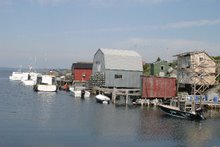Thursday, March 29, 2007
Taiwan discovers frozen natural gas
Taiwan has found off its coast huge deposits of frozen natural gas, known as the 'ice that burns' and billed as the energy source of the future, a newspaper said Saturday.A team of Taiwanese and Japanese researchers have succeeded in extracting samples of methane hydrate from the ocean floor off Taiwan's southwest coast and will publish their report in May, the Liberty Times reported.The team began its exploration two years ago, after US and Japanese scientists suspected methane hydrate deposits in the region through monitoring by satellite and scientific equipments.Relying on a deep-sea remote-controlled research ship, the team recently extracted crystallized methane hydrate from a depth of 1,100 metres and recorded how it began to melt at 500-metre depth and vaporize at 400-metre depth.Methane hydrate, in its original form, looks like whitish-yellow ice or ice cream. But at room temperature, it vaporizes and can be ignited, thus the name 'the ice that burns'.'One unit of methane hydrate contains 170 units of natural gas. So the ocean floor is like a gas cylinder holding compressed methane hydrate in crystal form,' Professor Yang Tsan-yao from the National Taiwan University and one of the team members was quoted as saying. The team estimates that Taiwan's southwest coast holds about 600 billion cubic metres of methane hydrate, enough to meet Taiwan's energy needs for 60 years.Several countries, including Japan, the US and Canada, have begun to explore methane hydrate - also called the 'greenhouse energy' - with Japan hoping to start commercial exploration in 2010.
Subscribe to:
Post Comments (Atom)

1 comment:
Its amazing the discoveries, that continue to be uncovered. 60 years of power for the Taiwan nation, is an impressive amount of energy to be hiding away for this long, and the form it has been discovered in is even more bizarre. I have never heard of anything like this before, it will be interested to see what is reported in the future about this site, and even more so methane hydrates.
Post a Comment